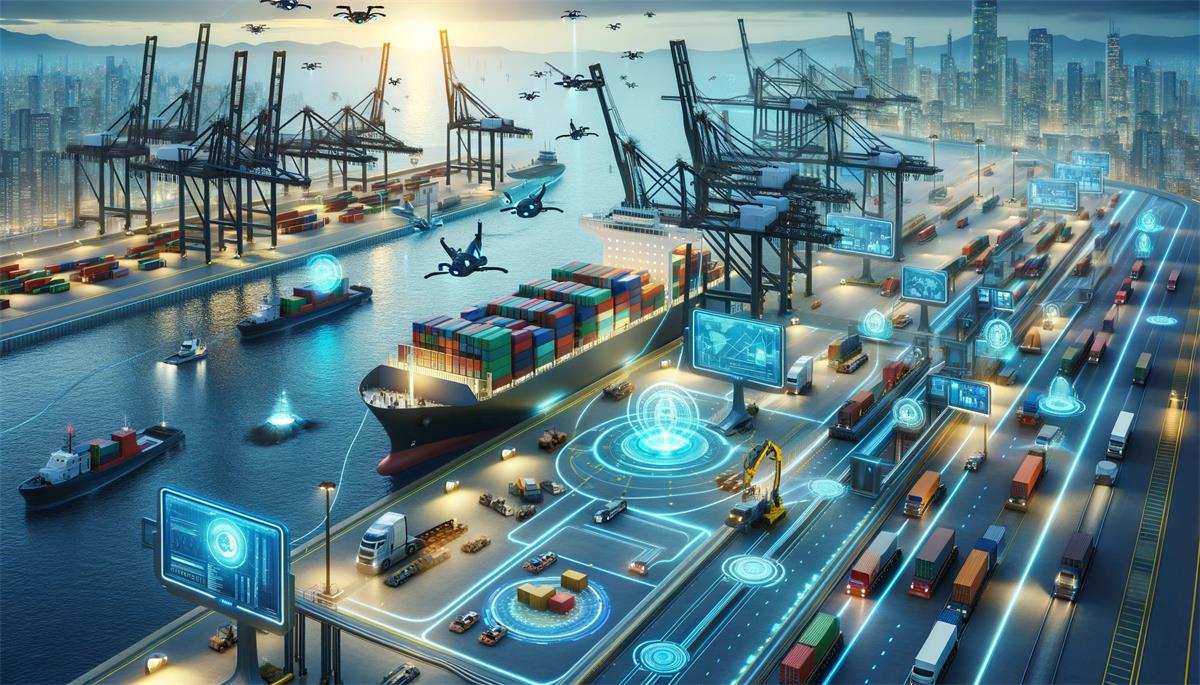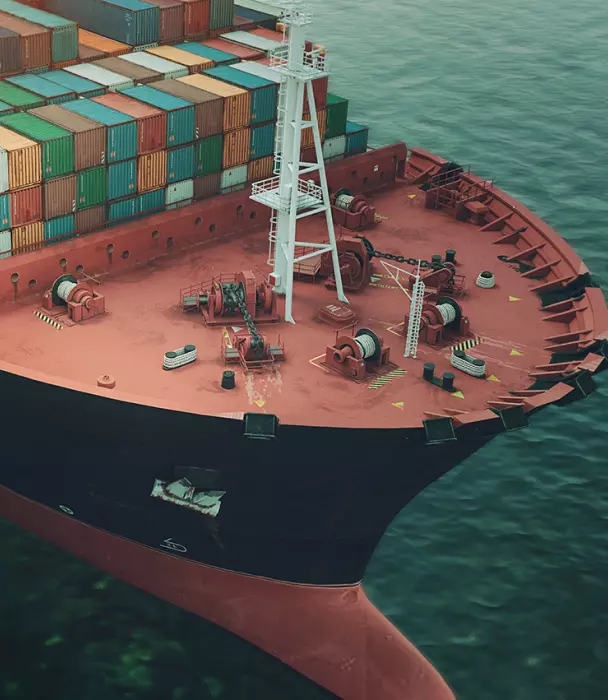In an age where efficiency, speed, and precision are paramount in logistics, the freight forwarding industry is turning to Artificial Intelligence (AI) and automation to revolutionize its operations. These technologies are already shaping the present and future of freight forwarding, in different ways:
^^ AI-Driven Route Optimization:
AI algorithms are playing a crucial role in optimizing freight forwarding routes, resulting in cost reduction and improved delivery times. By analyzing vast amounts of data, we can use AI to find the most efficient routes based on real-time traffic conditions, weather patterns, and other variables. This leads to faster transit times and significant cost saving for both forwarders and shippers/ importers.
^^ Enhanced Visibility and Tracking:
Automation and AI enable real-time tracking of shipments throughout the supply chain. Through IoT (Internet of Things) smart sensors and devices. Freight forwarders can monitor cargo location, temperature, humidity, and other vital parameters. This level of visibility helps to minimize losses, avoid delays, and enhance customer trust and satisfaction.
^^ Smart Warehouse Management:
Automation technologies, such as warehouse robotics, autonomous vehicles and drones and AI-powered inventory management systems, are streamlining operations in warehouses as well. These technologies can efficiently perform tasks like picking, packing, and stacking, reducing manual labor and costs, and increasing productivity. AI algorithms can optimize inventory levels, resulting in better space utilization and improved order fulfillment.
^^ Risk Assessment and Predictive Analysis:
AI algorithms can analyze huge amounts of data, historical & present, identify and track trends, demand spikes and forecast potential risks in the supply chain. By identifying potential disruptions, such as weather events or port congestion, freight forwarders can take proactive measures to mitigate the impact on their operations, which leads to better risk management and improved supply chain resilience.
^^ Blockchain Integration:
The integration of AI with blockchain technology promises enhanced security and transparency in freight forwarding. Blockchain can provide a secure, tamper-proof ledger for tracking transactions, while AI can analyze this data to identify patterns and potential issues. This synergy enhances the efficiency and security of the supply chain, as noted in a report by Accenture.
^^ Customer Service:
Easy-to-embed Chatbots and virtual assistants, powered by AI, are increasingly utilized to provide instant and efficient customer support 24/7. They are used to track shipments, handle routine inquiries, and even offer personalized recommendations, and the feedback from various channels is analyzed to derive actionable insights for continuous improvement in service quality. This also allows human customer service agents to focus on more complex tasks, ultimately driving greater efficiency and satisfaction in freight forwarding operations.
^^ Intelligent Document Management:
Freight forwarding involves numerous documents, including customs declarations, bills of lading, and insurance certificates. AI-powered systems can extract relevant information from these documents, automate data entry, and eliminate manual errors. This significantly reduces administrative overheads, enhances accuracy, and accelerates document processing.
AI and automation are revolutionizing the freight forwarding industry, driving efficiency, and enabling significant cost savings. By leveraging AI algorithms and automation technologies, forwarders can optimize routes, improve visibility, enhance warehouse operations, manage risks, and automate document handling. Implementing these technologies will be crucial for freight forwarders to stay competitive and embrace the future of shipping. However, while the benefits are substantial, the adoption of AI and automation also poses some challenges. There is a high initial investment costs, data privacy concerns, and the need for skilled personnel to manage and interpret AI systems. As AI continues to advance and new automation solutions emerge, the role of these technologies in freight forwarding will only continue to expand. Forward-thinking forwarders must proactively embrace these advancements and continuously adapt to the evolving technological landscape to secure their position as industry leaders.
We at All-Forward remain at the forefront of integrating these advanced technologies into our platform and tools, ensuring that our services remain cutting-edge and in line with the latest industry trends. By leveraging AI and automation, we are committed to driving efficiency, enhancing visibility, and delivering unparalleled value to our clients. As the freight forwarding landscape continues to evolve, we are dedicated to pioneering innovative solutions that propel our industry forward into a future of seamless logistics and unparalleled efficiency.


